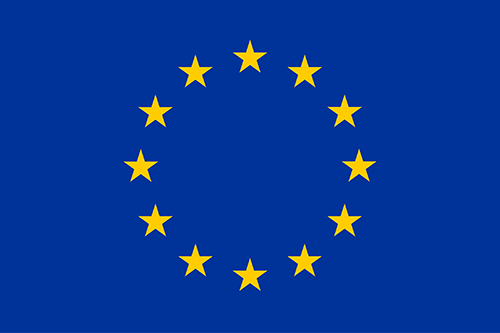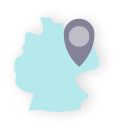Geyer
Germany
Centre
This reference region centers around the small town of Geyer in the Ore Mountains (Erzgebirge), situated app. 110 kilometers south of Leipzig, Eastern part of Germany, and with a long history of ore mining. The region is known for its deposits of tin, zinc, tungsten, molybdenum, copper, iron, silver and indium.
Industry & Business
INFACT targets the conditions that limit the effectiveness of the exploration industry and development of innovative non-invasive exploration tools that will pave the path to better, more effective, environmentally friendly, and publicly acceptable approaches to mining in Europe.
Activities/current status:
The state of Saxony outlines a “raw material strategy for Saxony”, to improve conditions of new mining activities as well as exploration activities. INFACT will build up strong connections to departments at state administration and politicians involved in this kind of policy, and contributes with transferring the results of the Geyer exploration to the overall goals.
Civil society
The results of INFACT will benefit the wider European society, whether in a form of environmentally friendly and socially acceptable exploration techniques or in a form of rising mineral resources security. Engaging society on all levels, horizontally and vertically, is the key issue for INFACT.
Activities/current status:
Similar to the other reference sites, engagement with the civil society will be established and maintained through three levels, local, regional and national. The local level spreads over the area in which the research activities will take place, of Geyer, Ehrenfriedersdorf and adjoining municipalities. The regional level means the area of the state of Saxony, and the whole Germany as national level.
Research & Education
With the aim to achieve the cutting-edge exploration approach, top researchers and experts are engaged in the project. A special attention is given to identifying the right education-related mechanisms for addressing various stakeholder groups. Academic participation in INFACT assures its credibility and unbiased approach.
Activities/current status:
For the case of the Geyer reference site, work on policy and legislation is in an early stage. The results will provide a practical and acceptable roadmap towards a Europe that presents a more attractive investment target for the exploration industry, which will improve systems that affect exploration conditions in Europe.
Legislation & Policy
Assessing the legal and legislative frames within European countries in the field of the exploration, including existing or potential obstacles, and finding the best practices and policies. It will provide a practical and acceptable roadmap towards a Europe that presents a more attractive investment target for the exploration industry, which will improve systems that affect exploration conditions in Europe.
Activities/current status:
For the case of the Geyer reference site, work on policy and legislation is in an early stage. The results will provide a practical and acceptable roadmap towards a Europe that presents a more attractive investment target for the exploration industry, which will improve systems that affect exploration conditions in Europe.
Dialogue & Inclusion
INFACT is based on nurturing a strong stakeholder dialog and communication throughout the project and beyond it. It aims at achieving a SLO (social licence to operate) for novel exploration techniques and consequentially their wide acceptance.
Activities/current status:
Over the whole period of INFACT, but with a focus on the research activities that take place in Geyer, an innovative process of engagement will be set up. The dialogue process will start with a number of talks, presentations and interviews with stakeholders in Geyer and Ehrenfriedersdorf as well as other municipalities, and representatives of the state of Saxony. Round tables and workshops will be organised to collect the opinion and attitude of the local and regional community concerning all exploration activities.

This project has received funding from the European Union’s Horizon 2020 research and innovation programme under grant agreement nº 776487.


